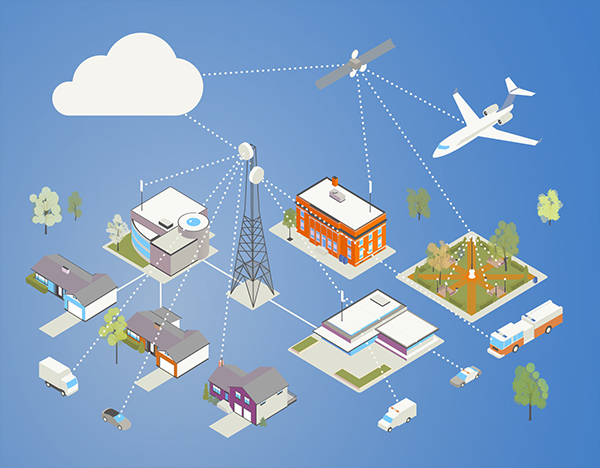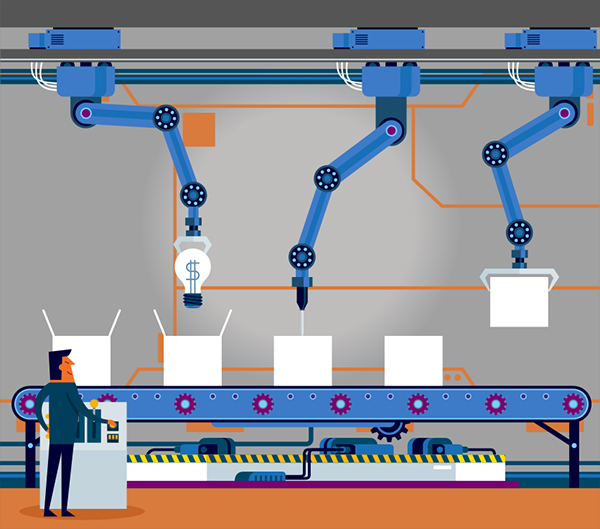All digital services begin with a common requirement—connectivity. The advent of 5G has created a massive potential for enhanced connectivity, in terms of both reach and bandwidth. At the same time, the concept of overlay services, like SD-WAN, has expanded the scope of technology-centric access, such as broadband Internet and wireless access, to seamlessly intertwine with assured connectivity services, such as MEF 3.0 underlay connectivity services like Carrier Ethernet.
Given these industry dynamics, MEF has numerous projects underway and published that work to take this latest technology set, couple it with MEF’s technical standards and SDKs, and further the capabilities of enterprise digital transformation across technology suppliers and service providers.
5G technology is both an enhancement to and enhanced by MEF 3.0 services. With its high-bandwidth, low-latency capabilities, 5G presents an access technology that can be leveraged by both underlay connectivity services, as well as overlay digital services, such as MEF 3.0 SD-WAN. However, 5G itself requires robust connectivity to address its backhaul-traffic and fronthaul-network segments, which is well addressed by bandwidth-efficient service standards, including MEF 3.0 Carrier Ethernet.
The exciting frontier realized with 5G is the concept of network slicing, and applying that concept beyond the 5G domain itself and across the entire network, leveraging the policy-driven nature of MEF 3.0 SD-WAN services. End-to-end (E2E) slicing enables the definition of a fully-defined user experience, based on application requirements across a network—including both fixed and wireless components, as well as multiple provider domains—a veritable utopia for enterprises adopting digital services to grow their business.
Policy-driven application performance objectives can be applied across the network, delivering multiple slice profiles for maximum utility of the network across multiple underlay connectivity services.
The desirable latency and bandwidth characteristics afforded by 5G require an exceptionally robust underlay-connectivity infrastructure for the fronthaul- and backhaul-network segments supporting 5G cells. MEF has developed its Carrier Ethernet standards for many years to support mobile backhaul and continues to do so with the latest requirements driven by 5G technology. The recent amendment to MEF 22.3: MEF 22.3.1 Transport Services for Mobile Networks delivers this support.
Further to these efforts, MEF is also defining use cases in support of 5G mobile-access network-sharing for providing multiple mobile-access network services over a common underlying fronthaul- and backhaul-infrastructure.


5G technology has removed a number of impediments to network access, such as cost or rights to trench fiber. By coupling MEF 3.0 SD-WAN services standards with 5G access, one can enable extensive reach with limited compromise of bandwidth and latency.
A service provider’s ability to orchestrate 5G local loops in a manner consistent with how they orchestrate all their other network assets is essential to fully realizing the benefits of service automation. MEF‘s LSO Sonata APIs are designed to support not only MEF 3.0 product payloads, but also those of other products—including 5G local loops—enabling inter-provider business and operational automation.

5G technology is quickly revolutionizing the architectural capabilities of network-based services and is an accelerant to enterprises’ digital transformation. Through a combination of MEF’s services standards and APIs, MEF is developing a number of much-needed products to ensure an effective and inter-operable transformation to support the ICT industry.
MEF and 5G — 2020 Jun
Product Portfolio: 5G
Tags: Mobile Backhaul, Mobile Fronthaul, Network Slicing
Relationship between the work of MEF and 5G technologies
Slicing for Shared 5G Fronthaul and Backhaul — 2020 Apr
Product Portfolio: 5G
MEF 3.0 Workshop – MEF & 5G: Orchestrating 5G Services — 2019 Nov
Product Portfolio: 5G
Following a brief introduction on 5G, the presentation covers the following main topics (beginning at 6:03): Transport for 5G, Orchestrating 5G services, 5G network slices, MEF Services over 5G network slices
MEF 22.3.1 Amendment to MEF 22.3: Transport Services for Mobile Networks — 2020 Apr
Amends: MEF 22.3
Product Portfolio: 5G, Carrier Ethernet
This amendment specifies changes to the baseline document MEF 22.3 to include the requirements for Ethernet Services that can be used as transport for 5G mobile networks. The services and requirements in this document are based on the Services defined in MEF 6.2 as well as the Service Attributes defined in MEF 10.3.
I want to investigate further. See all 5G resources:
5G technology is rapidly evolving modern network architectures. Ensuring this technology is addressed within the context of MEF 3.0, specifically the service standards and APIs, will best enable enterprises and their network suppliers to adopt and automate their services, from enterprise to provider, and between providers.
Provide your wireless network expertise and share knowledge with industry peers while propelling MEF’s mission to empower enterprise digital transformation. Together with SD-WAN, security, and MEF’s leading service standards, you can help shape the industry’s future. Our current 5G initiatives are available on the MEF Members’ Wiki.
All employees of active MEF-member companies are authorized to access MEF Members’ Wiki. Don’t have a login? Register. Not a member? Join MEF. Not sure? Contact Us.
Go to the Member Wiki